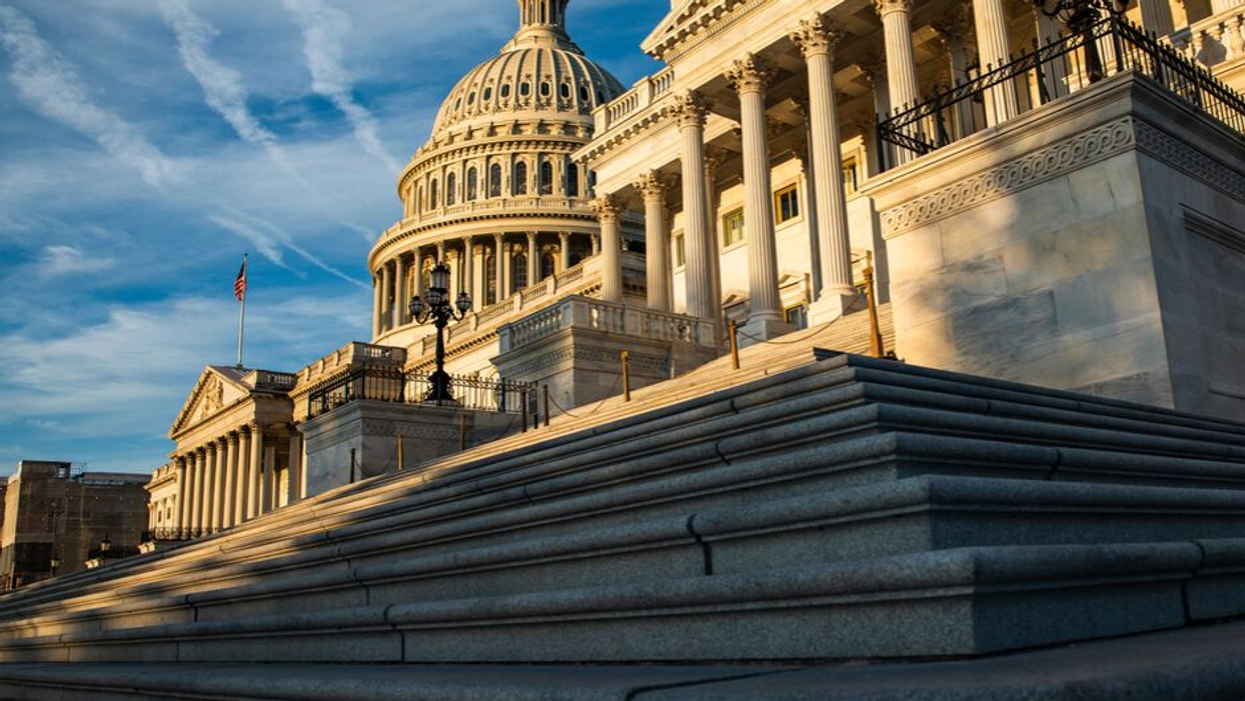Patton is director of the Rebuild Congress Initiative and a co-founder of the Harvard Negotiation Project. Fitch is president and CEO of the Congressional Management Foundation.
In an era when polls show head lice is more popular than Congress, something unusual is happening in Washington. Twelve politicians from all ideological stripes are regularly getting together to address serious problems, demonstrate mutual respect and make unanimous recommendations about improving our democratic institutions.
This unlikely group of superheroes is called the House Select Committee on the Modernization of Congress.
This committee was approved 418-12 by the House in January to "investigate, study, make findings, hold public hearings, and develop recommendations on modernizing Congress." This mandate may sound mundane, but it's actually very broad and there is an urgent need for Congress to upgrade its processes, systems and resources. Consider: The number of expert staff supporting Congress is down by a third since 1995, and the average age of a staffer is now 26.
These are the people who help Congress investigate problems, identify waste, oversee bureaucrats and regulators and come up with policy solutions. So perhaps it is no wonder the federal budget is up 50 percent, meaningful oversight is now rare and lobbyists are often asked to draft legislation.
Congress' technological resources are antiquated: Members cannot get "redlined" versions of proposed legislation, showing exactly how existing law would be changed. They are consistently overscheduled, often for multiple meetings at the same time. And much of the legislative process is still required by law to be paper-based. This in a world where constituents expect an Amazon-like timeline for service.
The committee is led by two results-oriented members, Chairman Derek Kilmer, a Democrat from Washington, and Tom Graves, a Republican from Georgia. These leaders wisely chose to operate their committee differently — not just from select committees of the past, but than any committee in the history of the Congress. The Democrats, as the majority in the House, could have created a committee with a majority of their party. Instead, the committee has six members from each party. Those members deliberately include representatives serving on other committees with jurisdiction over House operations, including the House Administration, Appropriations, and Rules panels. Those stakeholders not only bring the perspective of their respective committees, they also can later be advocates for recommendations that require broader congressional support.
Procedurally, the select committee has tried what many might consider "little" changes, but which constitute real change in congressional processes. For example, in one hearing, instead of the all Democrats sitting on one side of the dais, and Republicans on the other side, they sat side by side, donkey next to elephant.
In another hearing, on developing future leadership in the Congress, the chairman and vice chairman gave up the gavel and allowed the committee's two freshman lawmakers to chair the hearing. (Question to seasoned observers of Congress: When was the last time you saw a Democratic or Republican chairman willingly give up the gavel at a committee hearing?)
The select committee has already issued some strong recommendations that will improve the operations and transparency of Congress. They include opening up the committee process so Americans can see the inner workings of Congress; improving the orientation process for new members and making it nonpartisan; creating a central human resources office; and streamlining a vast array of technology processes and tools to save money and improve services to constituents.
There have been some disagreements, but these have been resolved in the kind of hard-headed working sessions the American people expect. In this sense, the select committee is not just offering substantive solutions to challenges facing the Congress; it is demonstrating by example how elected officials can solve problems collaboratively.
The committee's working motto is to create a Congress that "works better for the American people." Its members understand the ultimate assessor and benefactor of their work isn't a bunch of politicians in Washington, it's their constituents.
Unfortunately, the clock is ticking on this admirable team. The committee was given an initial budget and mandate that expires in less than five months. But surely their demonstrated accomplishments, pioneering new methods for decision-making and increasingly strong working relationships merit an extension. Kilmer, Graves and the rest of the panel serve as a useful example of what is possible to their colleagues and are entitled to another year of effort. With their track record to date, who knows what this committee could accomplish with more time working to restore the functionality to our first branch of government.



















Trump & Hegseth gave Mark Kelly a huge 2028 gift